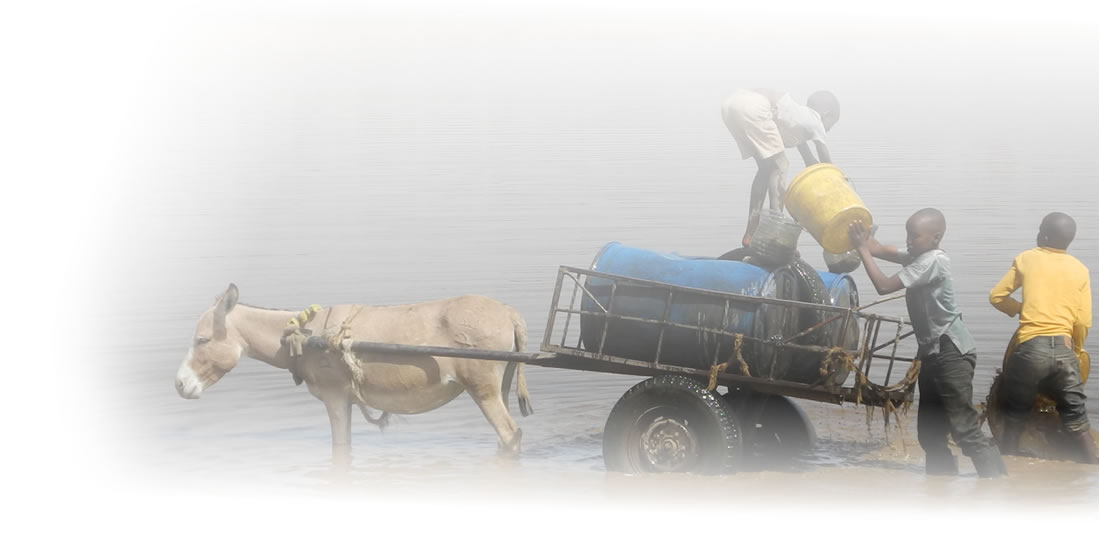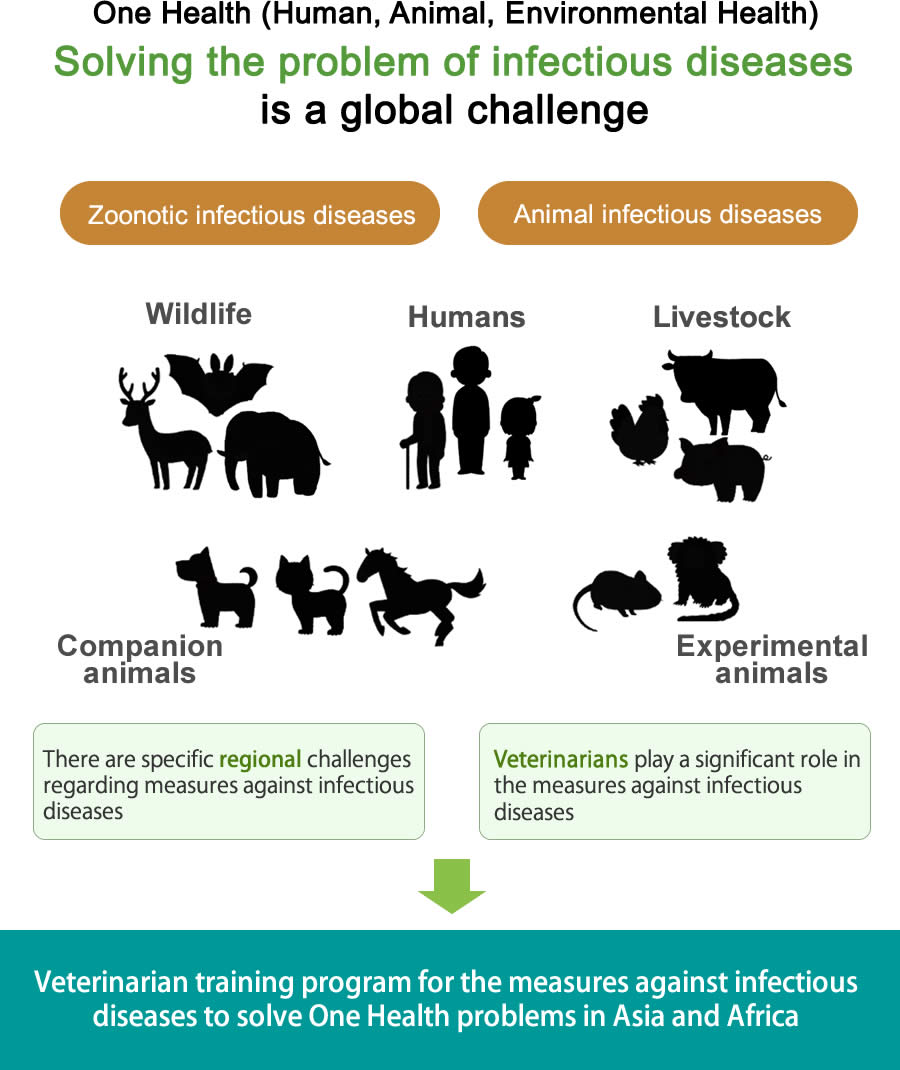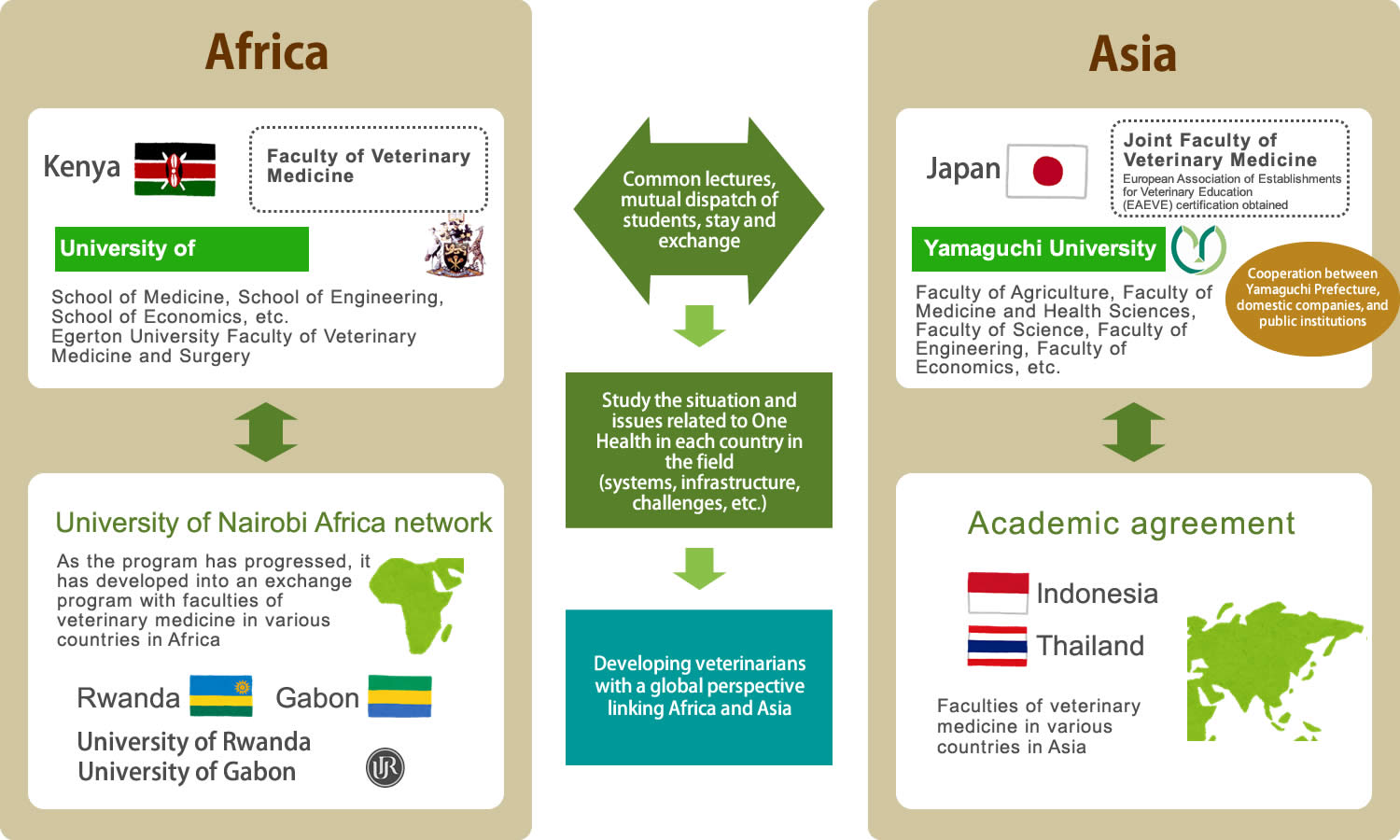
The aim of this project is to establish the education program for veterinary medicine and to develop the veterinary education and research system in Asia and Africa in collaboration with the Faculty of Veterinary Medicine and University of Nairobi, focusing on "Infectious diseases" that is an important topic for the "One Health" problems. Throughout this program, we lead students to veterinarians with a global point of view.
Geographic and social concerns are important factors of pandemic diseases due to human activities and logistics chain around the world. In fact, infections ranging from regional infectious diseases to global pandemics pose a significant threat to human health, food supplies and economic activities. These include emerging infectious diseases that are animal-derived such as COVID-19, influenza, and the Ebola virus diseases, as well as livestock infectious diseases such as foot-and-mouth disease, Classical swine fever, and African swine fever, which cause a serious problem in the field of agriculture and livestock. Therefore, to solve the problem of infectious diseases in specific regions is important priority to practice One Health.
Public health and animal health are important keys to control the infectious diseases. Therefore, it is strongly required to educate and train the veterinarians who can contribute to solve the One Health problem by the knowledge and skills to address a variety of issues from a global perspective. It is important for the development of veterinarians to provide the opportunity to study in different countries based on specific environments and social situations.
Africa is an endemic region of specific infectious diseases including tropical diseases and vector-borne diseases with concern the potential to spread globally, and some of them are not found in Japan. These include protozoal diseases such as Babesia and Trypanosoma, which cause serious damage to livestock, and zoonotic infectious diseases which include arthropod-borne viral infections such as the Rift Valley fever, Yellow fever, Dengue fever, Ebola viral diseases, Crimean-Congo hemorrhagic fever and Lassa fever. Therefore, it is an important opportunity for Japanese veterinarians and veterinary students to study infectious disease, public health and animal health, the endemic diseases and veterinarian role on site in Africa. Also, for African veterinarians and veterinarian students, it is an attractive opportunity to study on site in Asia.
To proceed this project, the Joint Faculty of Veterinary Medicine, Yamaguchi University and the Veterinary school, University of Nairobi in Kenya have concluded an international exchange agreement and are preparing to build a partnership in the education and research of veterinary medicine. The Joint Faculty of Veterinary Medicine, Yamaguchi University has been actively collaborating with veterinary schools of Universities in Southeast Asia, mainly in Indonesia, to develop a high education system in Asia, based on the international standard of veterinary education. The Veterinary school, University of Nairobi has also established an educational network with Veterinary schools in African countries such as Egerton University in Kenia, and in Rwanda.
This project aims to develop mutual veterinary education that contributes to One Health, focusing on the measures against infectious diseases, by utilizing common lectures and group discussions through remote systems, and carrying out on-site practical work and exchange, and training by collaborating with companies and research institutions, by mutual exchanges of students and young faculty staff. In the future, the project will provide the basis for the establishment of a network for veterinary education in Africa and Asia.


Veterinarians play a wide range of roles, including public health, animal health, clinical activity, research, and education, etc, and the knowledge and skills of One Health based on measures against human and animal infectious diseases are fundamental for these veterinarians' activity. Based on this educational program, we will develop human resources that can contribute to the practice of One Health from a global perspective by utilizing the expertise of veterinarians.
This program provides the opportunity to train the veterinarian students who are interested in research regarding emerging infectious diseases, zoonoses and animal infectious diseases. In both Japan and Africa, we aim to develop human resources that can contribute to the measures against infectious diseases from a wide range of perspectives, from basic and applied research in laboratories to field work outdoors.